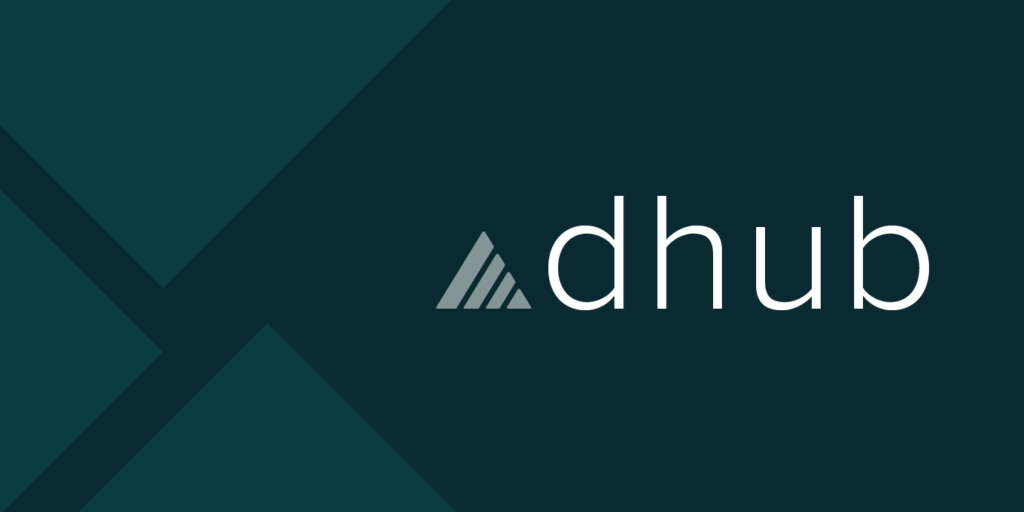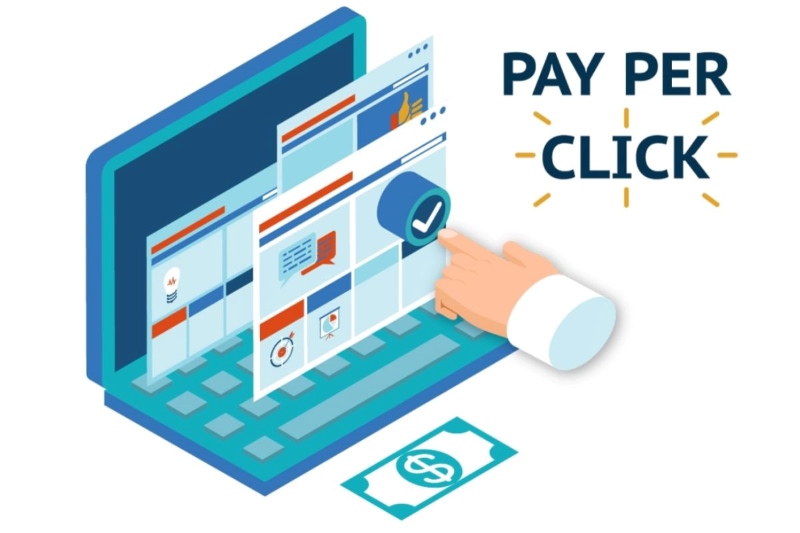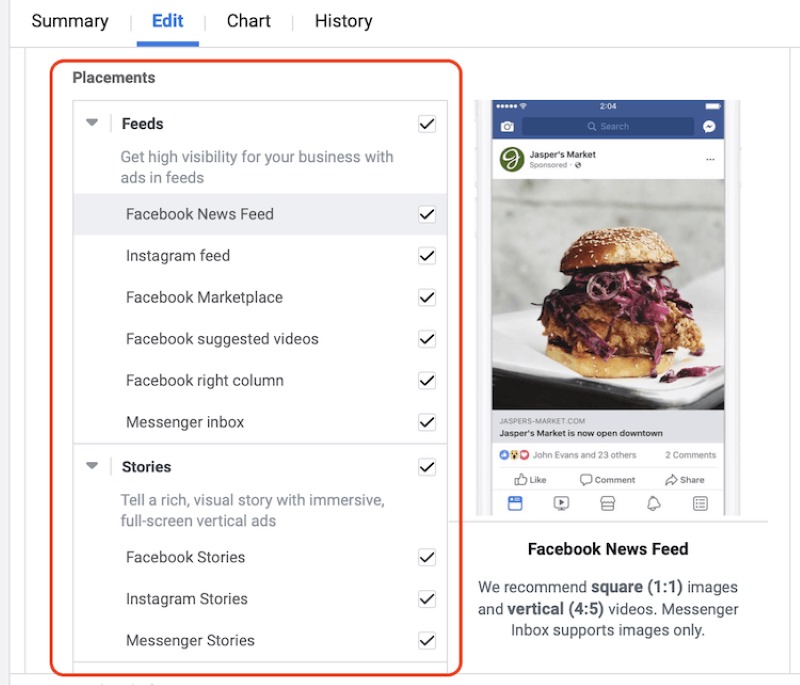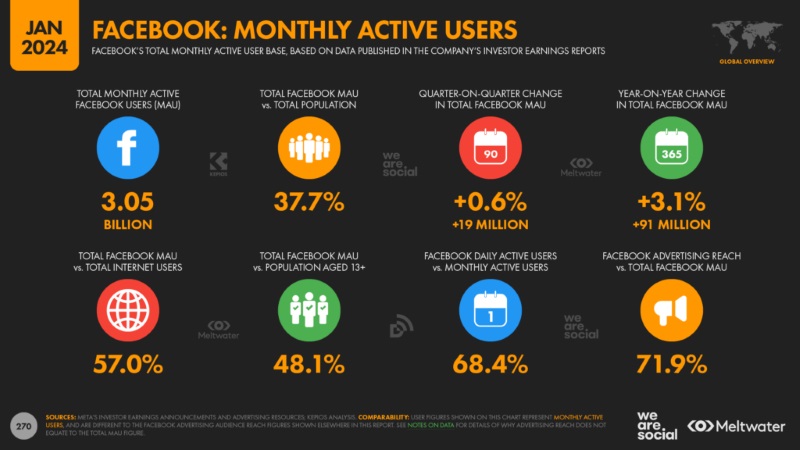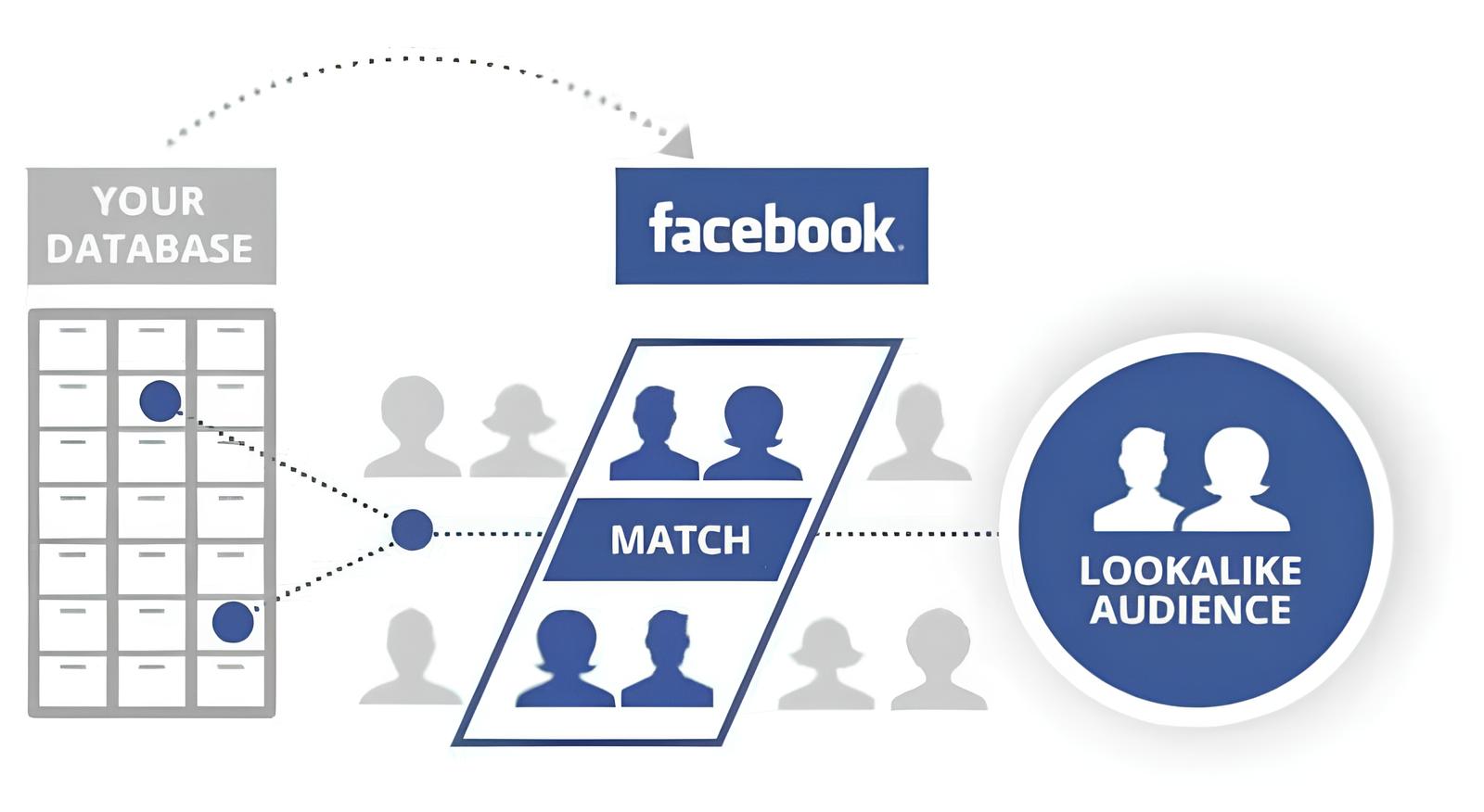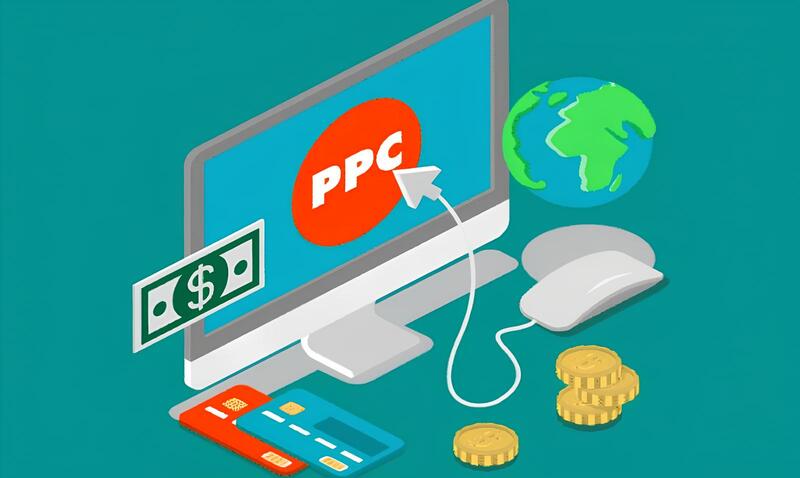Choosing the right platform for e-commerce Pay-Per-Click (PPC) advertising is essential to the success of your campaign, and Facebook PPC advertising stands out as a powerful tool for businesses. By enabling advertisers to reach highly targeted audiences and drive effective sales, Facebook offers a wide range of opportunities. In this blog post, we’ll take a deep dive into everything you need to know about Facebook PPC advertising, from its definition to best practices for ensuring successful campaigns.
What is Facebook Pay-Per-Click (PPC) Advertising?
Facebook Pay-Per-Click (PPC) is a digital advertising model where businesses pay Facebook every time a user clicks on one of their ads. This advertising approach enables businesses to promote products or services to a highly specific audience, leveraging Facebook’s detailed user data, which includes demographics, interests, behaviors, and more.
Facebook PPC also offers a variety of ad formats to choose from, such as image ads, video ads, and carousel ads, making it possible to craft engaging campaigns tailored to different audience preferences. Additionally, advertisers benefit from advanced targeting options, allowing them to precisely define their audience, manage ad budgets effectively, and use performance metrics to optimize results.
Where Can Your Facebook Ads Appear?
Facebook’s PPC ads can be displayed across several platforms within the Meta ecosystem, providing advertisers with flexibility to reach their target audience at the right time and place. The key ad placements include:
- News Feed: This placement works well for grabbing attention with visually appealing content while users are scrolling through their feed.
- Stories: Perfect for time-sensitive promotions or engaging users with immersive, full-screen experiences that are quick and impactful.
- Messenger: Ads displayed in Messenger are ideal for creating personalized offers or driving one-on-one engagement with customers in a conversational tone.
- Instagram Feed & Stories: Instagram is particularly effective for brands that rely heavily on visuals, such as those in the lifestyle, fashion, or food industries, and is excellent for targeting younger demographics.
The Benefits of Facebook PPC Advertising
Facebook’s PPC model offers a wide range of benefits, making it one of the top choices for businesses looking to drive results with their online advertising.
Access to a Massive Global Audience
With over 2.9 billion monthly active users, Facebook gives businesses an unparalleled opportunity to connect with a vast and diverse audience. Whether you’re targeting local customers or expanding globally, Facebook Ads helps you tap into new markets with precision.
For example, Adidas used Facebook Ads to promote its sustainable clothing line, resulting in over 30 million video views and a 12% increase in sales within the first month of the campaign. This demonstrates how Facebook can provide immense exposure, which directly impacts revenue growth.
Advanced Audience Targeting
One of the most powerful features of Facebook PPC is its highly advanced targeting capabilities. Advertisers can hone in on their ideal audience by defining criteria such as location, age, gender, interests, behaviors, and more. This precision targeting not only improves the relevancy of ads but also maximizes the efficiency of your ad spend.
A great example of this is Uber Eats, which used Facebook’s targeting options to increase app downloads by 45%. By focusing on users who were likely to order food, they also managed to reduce their cost-per-install by 20%, proving how targeted ads can improve both conversions and cost-effectiveness.
Cost-Effective Advertising
Facebook PPC is known for its cost-effectiveness, offering affordable options for businesses of all sizes. The average cost-per-click (CPC) on Facebook is just $0.97, making it accessible even for small businesses. Advertisers have control over their spending by setting daily or lifetime budgets, ensuring they don’t exceed their limits.
Gymshark, a fitness apparel brand, ran a Black Friday campaign with a minimal budget and generated over $1 million in sales, with an average CPC of just $0.30. This shows how even a modest investment in Facebook Ads can yield high returns.
How Does Facebook PPC Work?
The process of setting up and running Facebook PPC campaigns involves a few key steps, all of which revolve around Facebook’s auction-based system. Advertisers bid for ad placements, and Facebook uses an algorithm to determine which ads get shown based on several factors, including bid amount, ad quality, and relevance.
Here’s a simplified overview of how it works:
- Ad Creation and Targeting: Design your ads using Facebook’s range of ad formats, and define your target audience by selecting demographics, interests, and behaviors. You can also use custom audiences and lookalike audiences to target people similar to your existing customers.
- Budget and Schedule: Set your budget and define the duration for which your ads will run. Facebook ensures your ads remain active within your specified budget.
- Bidding System: Choose between manual bidding (giving you more control over bid amounts) or automatic bidding (where Facebook optimizes bids based on your budget to maximize results).
- Performance Tracking: Use Meta Ads Manager to track key metrics such as click-through rates (CTR), cost-per-click (CPC), and conversions, which will help you fine-tune your campaigns and maximize your return on investment (ROI).
How Much Does a Facebook PPC Campaign Cost?
The cost of running a Facebook PPC campaign can vary depending on several factors, such as your industry, audience, competition, and advertising goals. However, here are some average costs based on industry reports:
- Cost Per Click (CPC): $0.26 to $0.50
- Cost Per Thousand Impressions (CPM): $1.01 to $3.00
Advertisers can start with low budgets and adjust based on performance. You can also choose between daily or total budgets, and Facebook allows for both automatic and manual bidding, giving advertisers flexibility and control over their spending.
Best Practices for Facebook PPC Advertising
To maximize the effectiveness of your Facebook PPC campaigns, here are five best practices you should follow:
- Precise Audience Targeting Utilize Facebook’s audience targeting tools to ensure your ads reach the most relevant users. By defining your audience based on demographics, interests, and behaviors, you can increase engagement and conversion rates. Additionally, consider using custom audiences or creating lookalike audiences to find new potential customers who share similar traits to your existing audience.
- Compelling Ad Copy and Creative Use attention-grabbing headlines, engaging visuals, and clear calls-to-action (CTA) to encourage users to click on your ads. Experiment with different ad formats like carousel ads or video ads to see what resonates best with your audience.
- Optimize for Mobile Since a large portion of Facebook users access the platform on mobile devices, ensure your ads are optimized for mobile viewing. Use mobile-friendly designs and keep text short and to the point.
- Monitor and Adjust Campaigns Regularly Use Facebook Ads Manager to monitor the performance of your campaigns and make adjustments based on the data. Track key metrics like CTR, CPC, and conversions to improve results over time.
- Retargeting for Higher Conversions Retargeting allows you to show ads to users who have previously engaged with your brand. This helps increase the likelihood of conversions by reminding potential customers of your products or services.
Facebook PPC advertising offers businesses an effective way to reach a highly targeted audience, control costs, and drive conversions. By understanding how it works and following best practices, you can create powerful campaigns that deliver measurable results. Whether you’re a small business or a large corporation, Facebook’s ad platform provides the flexibility and scalability you need to succeed in today’s competitive digital landscape. Thank you for your interest in our MetaAdHub article.
